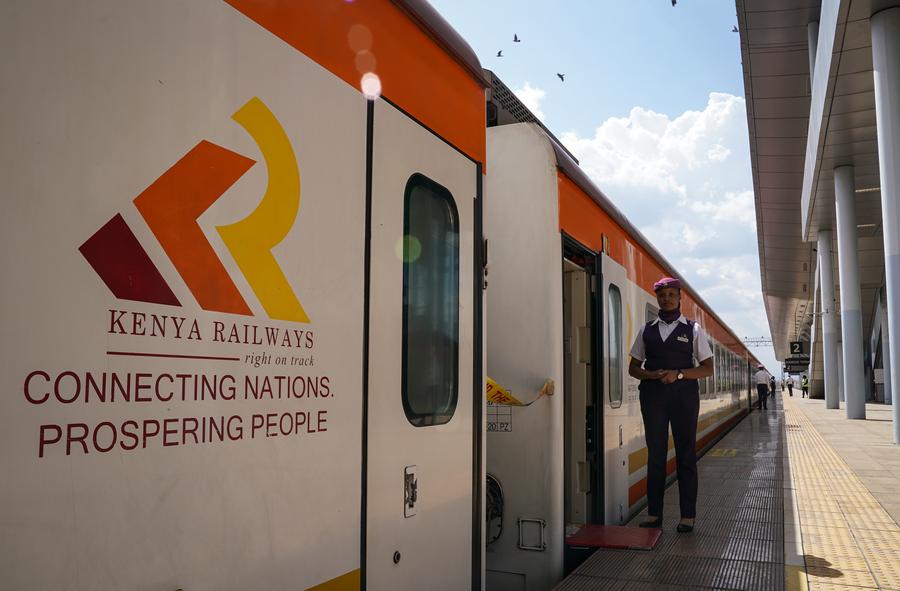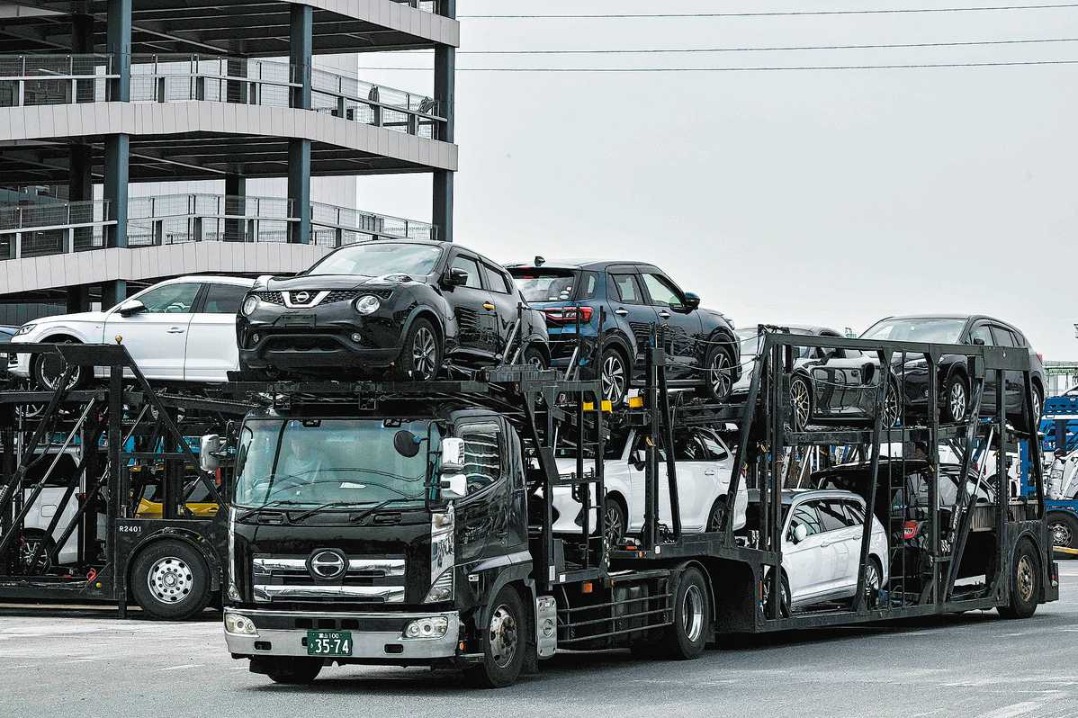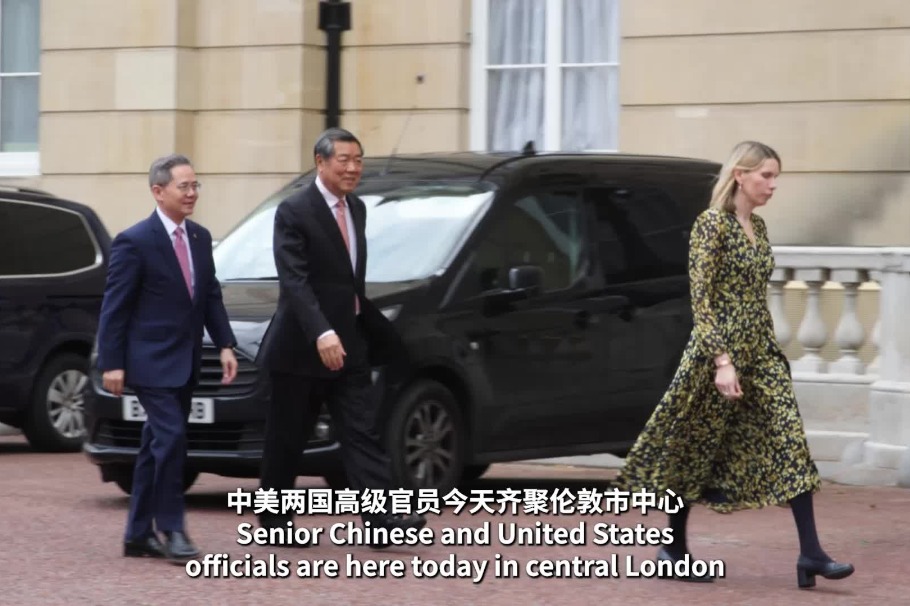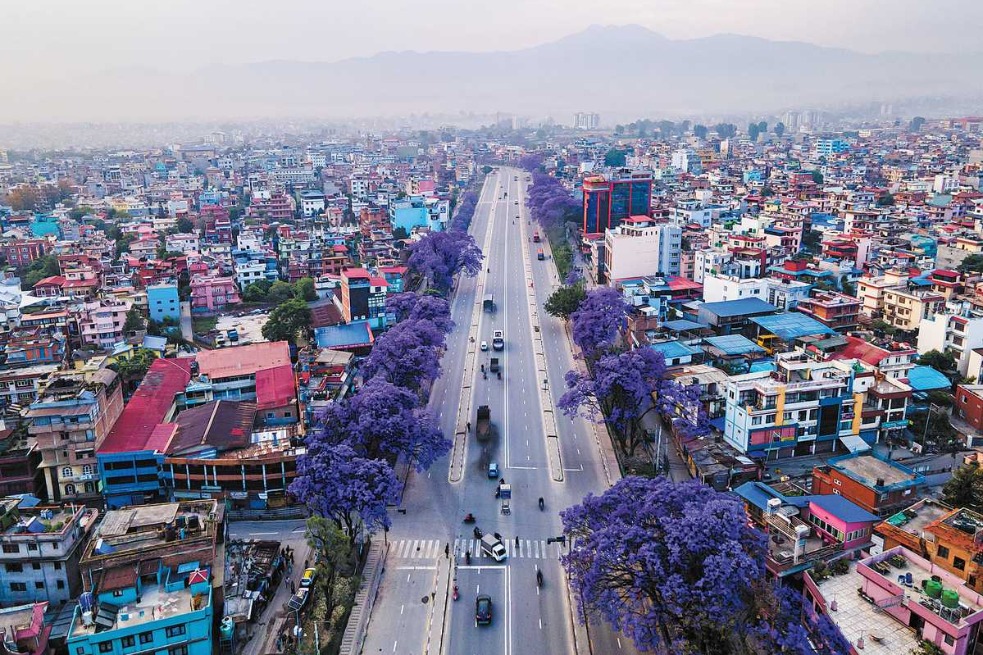Kenya seeks to expand, strengthen engagement under BRI


Kenyan President William Ruto's state visit to China in late April offered more than ceremonial diplomacy. It reflected a recalibration of Kenya's place within a rapidly evolving global order. Coming at a time when conversations about deglobalization, strategic autonomy and multipolarity are intensifying, Ruto's engagement with Beijing was timely and pragmatic, rooted in a recognition that Africa's future prosperity depends on meaningful partnerships, not polarized allegiances.
Rather than chasing scale for the sake of spectacle, the visit focused on a more deliberate, sustainable vision of cooperation. It underscored Kenya's desire to deepen its role in China's Belt and Road Initiative, while tailoring projects to align with national development priorities and current fiscal realities. In doing so, the visit shed light on a broader evolution in China-Africa relations — more mature, more measured and more focused on long-term value.
When the BRI was launched over a decade ago, it quickly made its mark on the African continent. Major transport corridors, power plants, industrial parks and digital infrastructure took shape at unprecedented speed. In Kenya, the standard-gauge railway became emblematic of this early momentum — bold, visible and transformative.
Now the BRI is in its second phase. No longer defined purely by large-scale infrastructure, it is increasingly oriented toward connectivity, digital economy, vocational training, green energy and regional integration. During Ruto's visit, discussions centered not on starting new billion-dollar projects, but on enhancing existing infrastructure, leveraging e-commerce platforms, investing in clean energy and improving logistics capacity in the agricultural value chain. This pivot speaks to both countries' recognition that the future lies not just in physical roads and railways, but in digital bridges, human capital development and trade facilitation.
Kenya's approach to China is guided less by ideology and more by opportunity. As geopolitical shifts redraw global alliances, the ability to build partnerships across power centers is becoming essential. The United States' return to hard-line trade policies and global uncertainty add urgency to this realignment.
Ruto's engagement with Beijing was thus not about choosing sides, but about maintaining strategic flexibility. Kenya continues to cultivate robust ties with the West, but sees its relationship with China as equally critical, especially in areas where Chinese expertise, speed and financing models align well with African development ambitions.
China views Kenya as a vital anchor in East Africa's transformation. Nairobi serves as a logistical and commercial hub for the region, and its proactive diplomacy, whether in peace-building, digital innovation or environmental governance, adds to its appeal as a long-term partner.
A more grounded China-Africa relationship has emerged over the past few years, reflecting the growing confidence and capacity of African governments to define their own terms. African countries, including Kenya, are now far more engaged in the design, implementation and monitoring of joint projects.
Kenya has sharpened its fiscal discipline while continuing to invest in infrastructure and connectivity. Instead of looking at debt as a binary question of risk or reward, policymakers are now focused on value: what returns projects generate, how quickly, and for whom.
One of the most promising areas of cooperation highlighted during Ruto's visit was the intersection of trade and digital infrastructure. Platforms like Alibaba's electronic World Trade Platform, smart logistics corridors and digital payment ecosystems represent the next frontier of the BRI, sometimes called the "Digital Silk Road".
Kenya's youthful population, high mobile penetration and growing tech ecosystem make it a natural partner in this domain. The integration of rural producers into cross-border e-commerce supply chains, the digitization of customs and logistics operations, and the development of green data centers are all under discussion. These areas are not only economically viable, but also inclusive, especially for women and youth.
Moreover, vocational training partnerships and technology transfer arrangements are set to expand. During the visit, agreements were reached to strengthen Chinese investments in Kenya's technical and vocational education and training sector, aligning with Kenya's goal of equipping its workforce with future-ready skills.
In many ways, Kenya is a bellwether for broader China-Africa relations. It illustrates the shift from volume to value, from donor-recipient dynamics to co-creation, and from abstraction to implementation.
Kenya does not seek transactional aid or isolated investments, but long-term collaboration that delivers shared prosperity. The language of Ruto's visit emphasizing trust, continuity and innovation suggests that China sees this potential as well. Beijing's offer to co-develop Kenya's next generation of industrial parks, its support for climate-resilient agriculture, and its backing for cross-border peace-building initiatives in the Horn of Africa demonstrate that China-Africa relations are evolving beyond infrastructure into broader development and governance spheres.
As the world becomes more complex and contested, Africa is showing that it can engage with multiple partners without compromising its agency or values. Africa is not being acted upon; it is acting, choosing and shaping.
President Ruto's state visit to China signaled a deeper, more sophisticated chapter in China-Africa relations anchored in trust, tempered by experience and guided by strategic clarity. This is the evolution of grand visions like the BRI. Kenya, by balancing ambition with realism, has positioned itself as a constructive partner in shaping the next phase of Afro-Asian engagement — one defined not by dependency, but by mutual growth.
The author is executive director of South-South Dialogues, a Nairobi-based development communications think tank.
































